Garbage IN, Garbage OUT
Category: Health & Wellness

There’s a term I learned in the computer industry many years ago: “Garbage In, Garbage Out”.
It means if the logic of your assumptions is flawed in your programming, whatever results your program spits out, no matter how ‘official’ looking, will be worth less… or even ‘worthless’.
So I was casually scrolling through Facebook and came across a post of the following article by James Hamblin, published Aug 25, 2017, via ‘The Atlantic’. It says men who Supplement with Vitamin B6 and B12 will have an increased risk of Lung Cancer.
Isn’t THAT scary?!
I’m a man. I take Vitamins, including B6 and B12, and I wanted to know if this was true or not. I clicked.
Hype or Help?
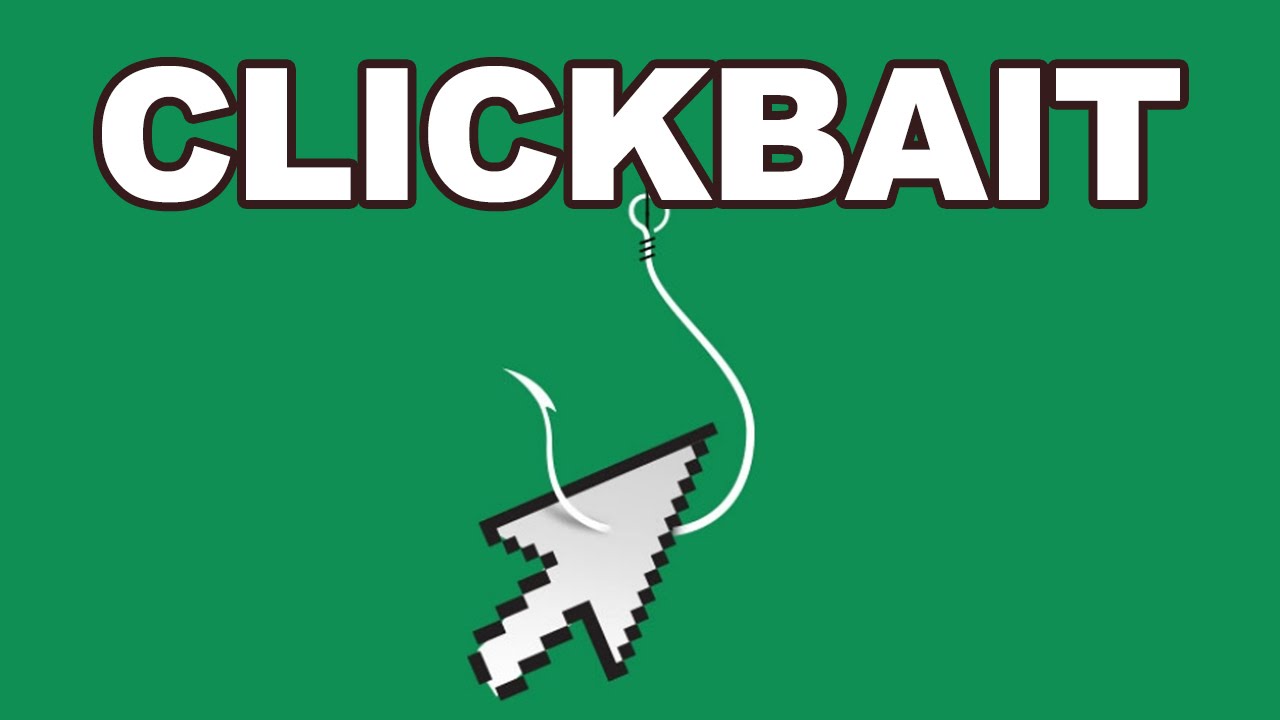 Sometimes articles like these are ‘click-bait’ with sensational titles (like ‘Vitamins Explode Lungs’, or ‘Supplement and Die’). The idea is you’ll click on it out of fear, or morbid curiosity, so that website can increase their traffic flow, and charge more to advertisers on their advert space. Usually, those stories are only a waste of time, but this didn’t seem to be like that. (and BTW, we do not monetize our posts, so no worries about us doing that).
Sometimes articles like these are ‘click-bait’ with sensational titles (like ‘Vitamins Explode Lungs’, or ‘Supplement and Die’). The idea is you’ll click on it out of fear, or morbid curiosity, so that website can increase their traffic flow, and charge more to advertisers on their advert space. Usually, those stories are only a waste of time, but this didn’t seem to be like that. (and BTW, we do not monetize our posts, so no worries about us doing that).
Why Care?
Many of you know I was diagnosed with a debilitating chronic illness in 1999. While seeking help from traditional western medicine, eastern practices, and more holistic alternative treatments, I also explored nutritional supplementation.
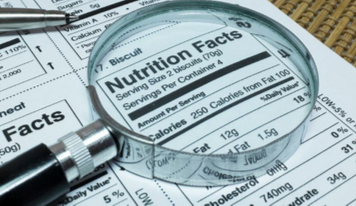
Over the years, I’ve tried many, many, products, remedies, formulations, and hopeful “cures”. I’ve learned a couple of key truths in my experience that many people don’t seem to know. This is for anyone also on a journey cutting their way through the jungle of hype to find the truth about supplementation.
Here’s the Good, the Bad, and the Ugly, as I see it, from Hamblin’s article.
First, the Bad.
Hamblin’s article is not what I’d call ‘click bait’, but readers may still be mislead by some of the statements and assumptions found in the text. For what it’s worth, read what I’ve learned from my experience so you won’t have to fall into the same traps I’ve stumbled into in the past.
- The supplements they tested can be found in retail stores like Whole Founds and GNC. Both studies cited (1) (2) in Hamblin’s article, claimed to use OTC (Over The Counter) products. Problem? not necessarily, depending on their assumptions…
- Their key assumption is that All Nutrients are the same. Whether testing B6, or B12, or whatever, there is a common misconception that all Vitamins are created equal, no matter where they are sourced from. This is simply Not True.
- ALL VITAMINS ARE NOT CREATED EQUAL. Good scientific studies are performed with placebo-controlled, double-blind standards. Proper methodology, procedures, and objectivity, are essential before a study may be published in a peer reviewed journal. But what if they don’t highlight the SOURCE of the nutrients used in the study? I don’t mean just which brands, but the actual origin of the nutrients. Wouldn’t that bring into question their conclusions?
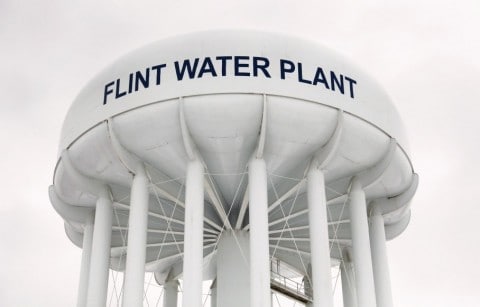
- FALSE POSITIVES. For example, what if you were conducting a scientific hydration study? Let’s say you want to know how different consumption levels of water throughout the day affect a child’s academic performance in school. Now, let’s say the water you give them comes from the tap in Flint, Michigan? Well, if that water is tainted with heavy metals and poisons, as we know Flint residents were dangerously exposed to, would that skew the results of your study? Wouldn’t readers of your results want to know where the water came from before accepting your conclusions? Especially if you conclude that increased water usage among children causes cognitive decline. Wouldn’t we want to know it’s not all water that is the problem, but the contaminants (like lead) in that particular water, that is causing the cognitive decline? I would.
- How can we tell the difference between natural vitamins and synthetic vitamins? Start by asking good questions:
- Were these nutrients extracted from living, organically grown, plant sources? Or,
- Were they made synthetically in a lab and shipped for general distribution to manufacturers everywhere? I’d want to know.
- Review the science. Any scientific study of nutritional affects on the human body MUST detail the SOURCE of those nutrients. As many of you know, this is another (of hundreds) of reasons we choose Shaklee… they have the science to back their products. Here’s one example:
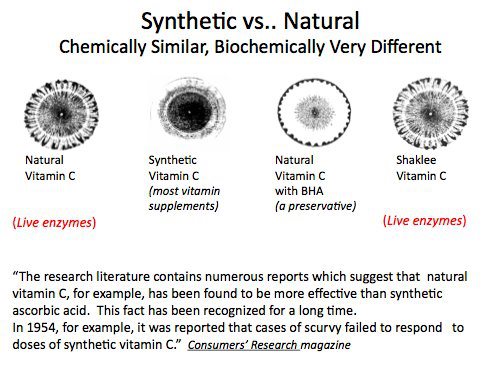
Then The Ugly,
 Hamblin’s article does illustrate, quite correctly, the consumer risk built into our supplement industry. Consumers want a level playing field, safe products, and no false/misleading claims. Most people think supplements are more “Natural” than drugs. They also *somehow* believe they’re already getting treated to a high standard of integrity on a regular basis. Unfortunately, not true.
Hamblin’s article does illustrate, quite correctly, the consumer risk built into our supplement industry. Consumers want a level playing field, safe products, and no false/misleading claims. Most people think supplements are more “Natural” than drugs. They also *somehow* believe they’re already getting treated to a high standard of integrity on a regular basis. Unfortunately, not true.
The LAW: Supplement manufacturers operate in the United States under the laws of the ‘Dietary Supplement Health and Education Act of 1994′ (and it’s subsequent addendums/revisions). Basically, this law was NOT written as much to protect we consumers as to protect the businesses who sell to us.
The DSHEA authorizes the supplement industry to “Self Regulate” and market basically whatever they want, without much, if any, government interference. Unlike a pharmaceutical company, a vitamin company does not legally have to PROVE their product is Safe, Effective, and Honest before slapping a label on it, and stocking it on store shelves everywhere. It’s like letting a wolf guard your flock because it dresses like a sheep, and trusting him until sheep start to go missing.
Professional Skeptic Steven Novella said in his article:
“The deal that DSHEA and NCCAM made with the public was this: Let the supplement industry have free reign to market untested products with unsupported claims, and then we’ll fund reliable studies to arm the public with scientific information so they can make good decisions for themselves. This “experiment” (really just a gift to the supplement industry) has been a dismal failure. The result has been an explosion of the supplement industry flooding the marketplace with useless products and false claims.”
Supplements in America are legally considered SAFE until proven Harmful.
 Manufacturers are NOT required to prove their product is SAFE , OR EFFECTIVE, before putting it on the market. Potentially dangerous, and useless, supplements may be sold freely under whatever claims, and “evidence” the manufacturer offers, until they are PROVEN unsafe, or ineffective. The burden rests on the government to make that case.
Manufacturers are NOT required to prove their product is SAFE , OR EFFECTIVE, before putting it on the market. Potentially dangerous, and useless, supplements may be sold freely under whatever claims, and “evidence” the manufacturer offers, until they are PROVEN unsafe, or ineffective. The burden rests on the government to make that case.
Former Head of the FDA, David Kessler, highlighted a main weakness of the law:
“The 1994 Dietary Supplement Act does not require that dietary supplements (defined broadly to include many substances, such as herbs and amino acids, that have no nutritive value) be shown to be safe or effective before they are marketed. The FDA does not scrutinize a dietary supplement before it enters the marketplace. The agency is permitted to restrict a substance if it poses a ‘significant and unreasonable risk’ under the conditions of use on the label or as commonly consumed … Congress has shown little interest in protecting consumers from the hazards of dietary supplements, let alone from the fraudulent claims that are made, since its members apparently believe that few of these products place people in real danger. Nor does the public understand how potentially dangerous these products can be.”
Buyer Beware: “Smaller Government” means ‘Deregulation’ which means fewer consumer protections

The FDA is the agency tasked with protecting consumers regarding all Food items and Drugs. Companies that do not want to be rigorously held to a high standard, spent lots of money to insure supplements would be classified as ‘food’ items, and not subject to the kind of regulatory testing that drugs are. Industry lobbyists have, for many years, advocated for weaker FDA oversight of supplements. They have succeeded. Manufacturers have more freedom with less accountability. Shareholders have more money, and confused consumers have more crap to choose from.
The FDA is severely limited in requiring manufacturers to produce an honest product that does what it says, contains what it claims on the label, and does no harm. In fact, the agency’s budget, and staffing, is SO inadequate to police the huge supplement industry, the chances you, or your loved ones, are flushing good money down the drain, — or even being harmed — by purchasing ‘natural’, ‘healthy’ OTC products is higher than ever.

Now the Good News:
How do you know if a supplement contains synthetic vitamins?
You can still decipher some facts by Reading the Label
Ingredients that begin with the letters “dl”, like “dl-alpha tocopherol” for Vitamin E are synthetic
But what if you don’t have the time, or desire, to research and know all this stuff, and you’re just looking for a brand you can trust? Fortunately, there is a company that spends more on research, development, and quality control than any other I know of in the entire industry.
How do you know who to trust?
The science of Shaklee is second to none. They’ve done all the work for us already! The more I learn (and experience), the more I become convinced I’ve discovered the best kept secret in the supplement industry. I encourage you to move beyond marketing hype (no matter how well presented) and begin asking better questions BEFORE you actually introduce a product into your (or your child’s) body. Millions of people already know just how good Shaklee is. There is plenty of solid content available to you online for FREE. These are some easy, informative links to help you make better choices, without a lot of sales hype:
Watch any of the videos about The Science of Shaklee on our Youtube channel
____________________________________________________________________________
Signup for our monthly Newsletter “Vitality for Life”
____________________________________________________________________________
Visit our Home Page to Learn more about us.

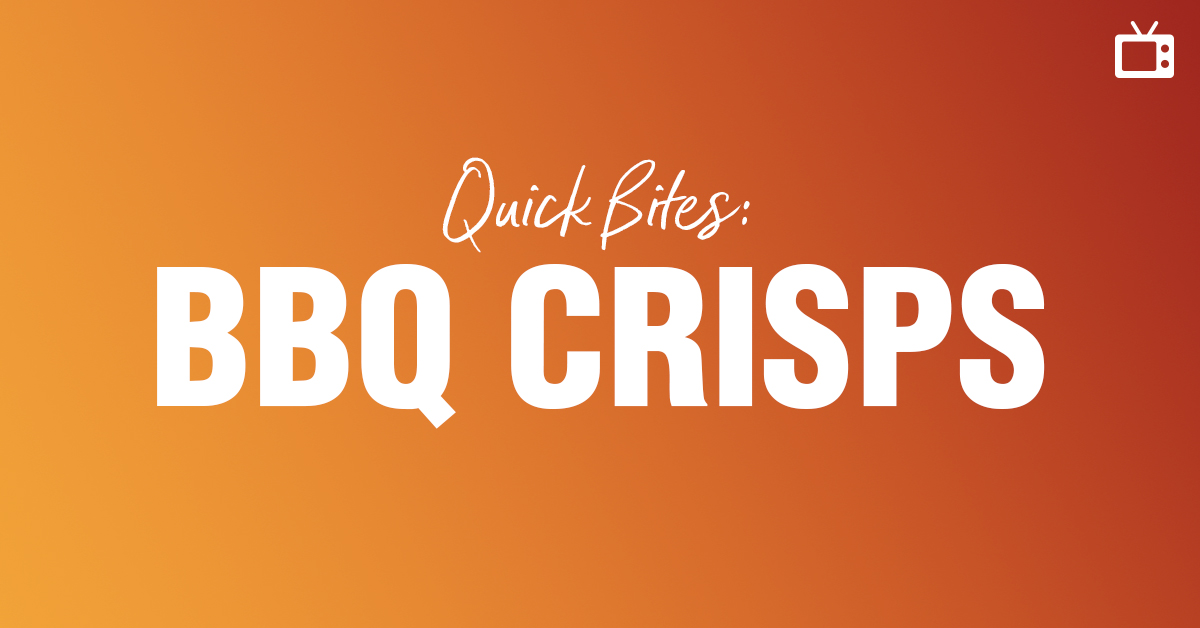
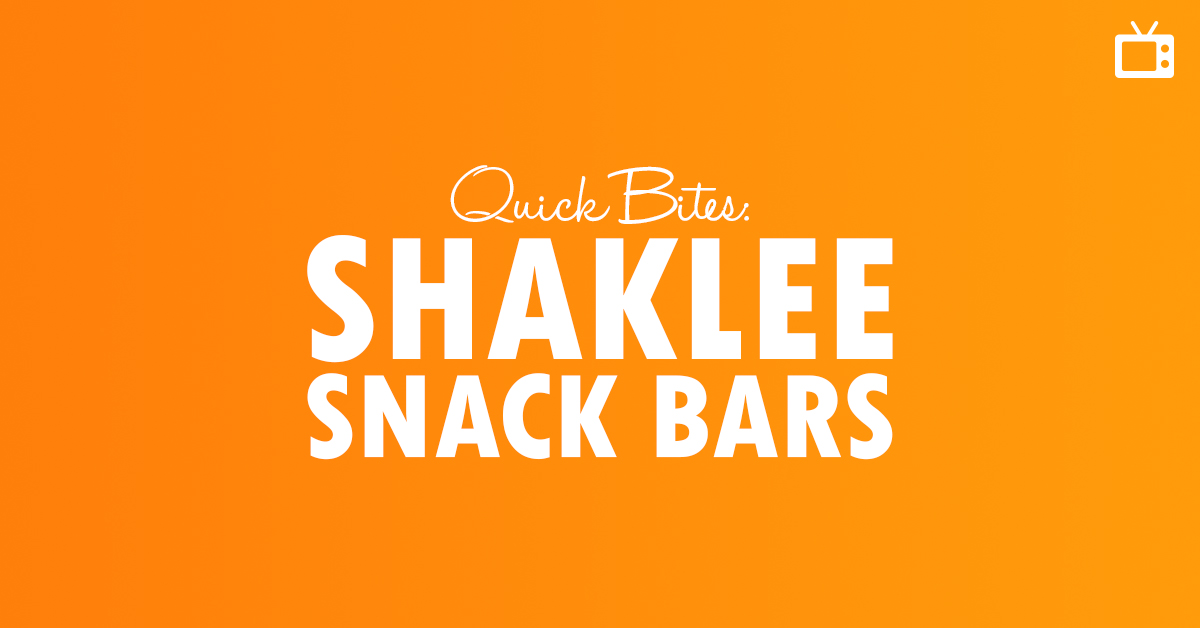
Facebook Comments